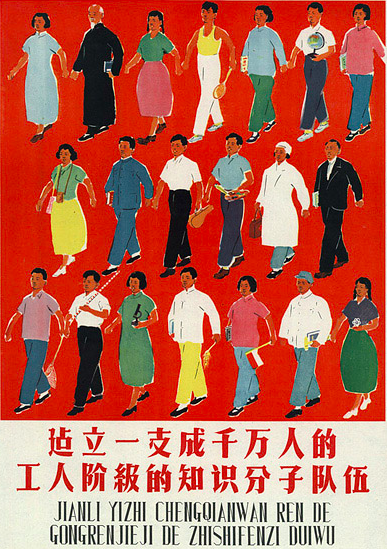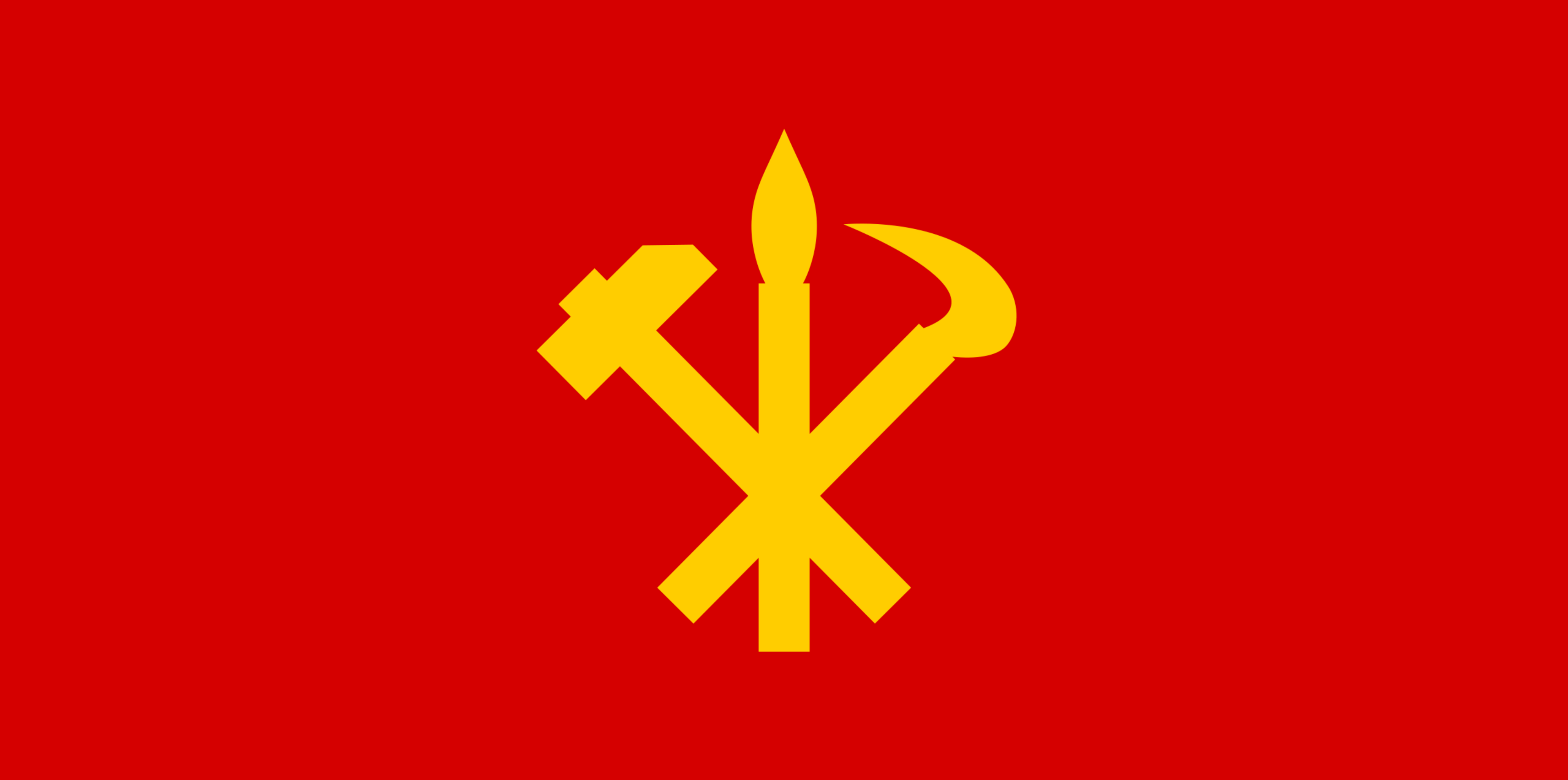More languages
More actions

The intelligentsia are a specialized social stratum of intellectuals, scholars, and cultural workers whose activities are primarily concerned with producing and disseminating knowledge, art, or critical thought. However, the intelligentsia is not a homogenous class and whilst the majority of intellectuals tend to serve the ruling class, individual intellectuals may instead join the exploited class due to the inherent contradictions in society.
The class which controls the means of production also has control over the means of mental production meaning that the ideas of the ruling class are therefore the ruling ideas. This means that the intelligentsia, the class which spreads these ideas, therefore represent the ideas and interests of the ruling class as shaped by the material conditions as part of class relations.[1] After a revolution, the new ruling class seeks to assimilate or take control of the intellectuals from the previous ruling class.[2]
Under capitalism
Under a dictatorship of the bourgeoisie the ruling ideas spread by most of the intelligentsia are naturally bourgeois ideas.[1] But, as Lenin points out, the exploited class, the proletariat, can of its own devices only develop only a "trade-union consciousness." Meaning that a revolutionary intelligentsia educated in Marxist ideas must form a vanguard party to lead the proletariat to form a revolutionary consciousness.[3] However, at the same time intellectuals must form a balance between theory and practice or risk making ultraleft errors by isolating themselves from the proletariat due to their own perceived superiority.[4]
Under socialism

Under a dictatorship of the proletariat the intelligentsia is key in aiding socialist construction with the old intelligentsia being converted to socialist ideas whilst a new intelligentsia is also formed from an increased access to education for the oppressed classes. Although some backsliding to bourgeois ideas may occur, the intelligentsia will largely serve the proletariat in advancing science and culture. Over time during the transition to communism the distinction between manual and mental labour will fade away and will eventually wither away along with class.[5]
See also
References
- ↑ 1.0 1.1 “The class which has the means of material production at its disposal, has control at the same time over the means of mental production, so that thereby, generally speaking, the ideas of those who lack the means of mental production are subject to it.”
Karl Marx and Friedrich Engels (1846). The German Ideology: 'Chapter 1: Feuerbach: Opposition of the materialist and idealist outlooks; The illusion of the epoch - Ruling class and ruling ideas'. - ↑ Antonio Gramsci (1932). The Intellectual, the State, and the Political Party.
- ↑ “The history of all countries shows that the working class, exclusively by its own effort, is able to develop only trade-union consciousness... The theory of socialism, however, grew out of the philosophical, historical, and economic theories elaborated by educated representatives of the propertied classes, by intellectuals.”
Vladimir Lenin (1902). What Is to Be Done?: 'Chapter 2: The spontaneity of the masses and the consciousness of the social-democrats; The beginning of the spontaneous upsurge'. - ↑ “To refuse to work in the reactionary trade unions means leaving the insufficiently developed or backward masses of workers under the influence of the reactionary leaders, the agents of the bourgeoisie, the labor aristocrats, or “workers who have become completely bourgeois””
Vladimir Lenin (1920). "Left-wing" communism, an infantile disorder: 'Should revolutionaries work in reactionary trade unions?'. - ↑ E. A. Ambartsumov (1979). The Great Soviet Encyclopedia: 'Intelligentsia; Socialist society'.
